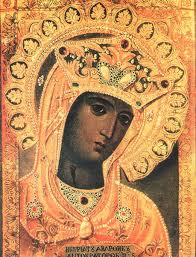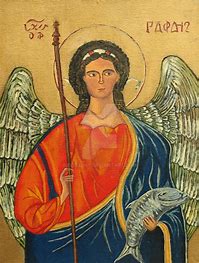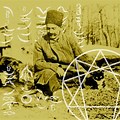St George's Day 2022: He wasn't England's first patron saint and 8 other facts









St George's Day 2022: He wasn't England's first patron saint and 8 other facts
Every year on April 23 we celebrate St George's Day in honour of England's patron saint. As children we were taught to believe in him as a great knight taking on a fire breathing dragon.
Yet, as with many things, it's a case of why let the facts get in the way of a good story. The dragon slaying was a myth, he wasn't even English and never actually visited the country.
And, this might be news to some, St George wasn't even England's first choice patron saint.
So who was St George and how did he become England's patron saint? Here are some St George's Day facts.
He never visited England
Unlike Ireland and St Patrick who is said to have converted the Emerald Isle to Christianity, St George has no obvious connection to England.
St George was not the first patron saint of England
That honour was originally held by St Edmund, or Edmund the Martyr, King of East Anglia in the 9th century AD. He fought alongside King Alfred of Wessex against the pagan Vikings until 869/70 when his forces were defeated and Edmund was captured.
He was ordered to renounce his faith and share power with the Vikings, but he refused. He was then bound to a tree, shot through by arrows and beheaded.
During the Third Crusade in 1199, King Richard I visited the tomb of St. George in Lydda on the eve of battle. The next day he won a great victory. Following this triumph, Richard adopted St. George as his personal patron and protector of the army.
So he become England's patron saint then?
No, King Edward III made him the Patron Saint of England when he formed the Order of the Garter in St. George’s name in 1350, and the cult of the Saint was further advanced by King Henry V, at the battle of Agincourt in northern France.
Publicity picture Kenneth Branagh as Henry V, Royal Shakespeare Theatre, Stratford-upon-Avon, 1984
An event made famous by William Shakespeare. The playwright and St George have something else in common don't they?
That's right, they share the same date of death - April 23.
So who was St George?
There are two popular theories about St George’s origins, but the consensus is that he was born the Middle East. Some say his birthplace was in what is now modern day Turkey, others say he came from Palestine.
Thought to be born to Christian parents, he was a soldier in the Roman Army but was said to have been persecuted and tortured for refusing to ditch his faith in favour of Roman paganism. According to legend, George was both boiled and sandwiched between two wheels of spikes.
He was executed on April 23, 303AD after he refused Emperor Diocletian’s order to renounce Christianity. It is claimed St George was dragged through the streets of Lydda and beheaded.
What about the dragon?
While not likely to have actually killed a dragon, many paintings feature him slaying one. It is likely this is to represent him defeating the devil or evil, or reflects his bravery in refusing to bow down to Roman persecution.
Jacobus de Voragine first came up with the dramatic back story for St George in his book ‘Golden Legend’. In it, George kills a dragon which was guarding a well, just before villagers planned to sacrifice a woman to keep it happy.
St George was a saint for 1,000 years before the holiday
He was canonised in AD 494 by Pope Gelasius, who claimed he was one of those 'whose names are justly revered among men but whose acts are known only to God'.
A feast day of St George has been celebrated in England for hundreds of years on April 23. Following the Battle of Agincourt in 1415, St George's Day became one of the most important feast days in the English calendar.
Reach plc An image of William Shakespeare
He's a popular lad
St George is truly an international saint and England is not the only country or region to claim him as its patron.
England shares St George with Venice, Genoa, Portugal, Ethiopia and Catalonia - among others as their patron saint and many of these places have their own celebrations and ceremonies in his honour.
St George represents those we honour
The Order of the Garter (founded by Edward III in 1348) is the highest order of chivalry in the country and Queen Elizabeth II is at the helm as Sovereign of the Garter. To this day St George’s cross still appears on the Garter badge and his image is the pendant of the Garter chain.
In 1940 King George VI created a new award for acts of the greatest heroism or courage in circumstance of extreme danger. The George Cross, named after the king, bears the image of St George vanquishing the dragon. The image of St George also adorns many of the memorials built to honour those killed during World War One.
Reference: Chronicle Live: Mike Kelly
Sweden hit by fourth day of unrest over planned Quran burnings









Sweden hit by fourth day of unrest over planned Quran burnings
Clashes have taken place yet again across several Swedish cities following threats to burn the Quran by a far-right group.
Local media reported three people were injured in the eastern city of Norrkoping after police were forced to fire waring shots at rioters.
Several vehicles were also set on fire and up to 17 people were arrested following clashes with police, the BBC reports.
Danish-Swedish extremist Rasmus Paludan, who leads the Stram Kurs, or Hard Line, said he had burnt the Islamic holy text and would do so again with further events across the country.
Unrest sparked on Thursday following the threat and continued on both Friday and Saturday in the cities of Stockholm, Linköping and Norrkoping.
Paludan had threatened to hold an event in Norrkoping on Sunday but did not show up after claiming Swedish authorities could not “protect themselves or me” on his Facebook page.
Video also emerged of protesters throwing stones at police and rioters burning cars in Orebro.
Provided by Evening Standard Riots have occurred across the country since Thursday (TT NEWS AGENCY/AFP via Getty Ima)
At least 16 police officers were injured over the three days, while several vehicles were set alight on on the southern city of Malmo on Saturday.
Counter groups also clashed with Stram Kurs, where approximately 100 people threw stones and set cars on fire in Landskrona.
Sweden’s national police chief, Anders Thornberg said he had never seen such violence before.
He said: “We have seen violent riots before. But this is something else.”
The Iranian and Iraqi government both summoned Swedish envoys to protest against the burning of the religious book.
Reference: Evening Standard: Bill McLoughlin
Pope condemns Russia for ‘cruel and senseless’ invasion of Ukraine in sermon on ‘Easter of War’










Pope condemns Russia for ‘cruel and senseless’ invasion of Ukraine in sermon on ‘Easter of War’
Pope Francis referred to an “Easter of war” in his sermon on Sunday, as he implicitly criticised Russia for its “cruel and senseless” invasion of Ukraine.
The 85-year-old pontiff made his comments in his twice-yearly Urbi et Orbi (to the city and the world) address in front of around 50,000 people in St Peter’s Square after a long Mass.
It was the first Easter since 2019 that the public was allowed to attend following two years of Covid-induced restrictions.
Pope Francis dedicated much of the address, traditionally an overview of world conflicts, to Ukraine, comparing the shock of another war in Europe to the shock of the apostles who, the gospel says, saw the risen Jesus.
“Our eyes, too, are incredulous on this Easter of war. We have seen all too much blood, all too much violence. Our hearts, too, have been filled with fear and anguish, as so many of our brothers and sisters have had to lock themselves away in order to be safe from bombing,” he said.
Ukraine, he said, was “sorely tried by the violence and destruction of the cruel and senseless war into which it was dragged”.
“Let there be a decision for peace. May there be an end to the flexing of muscles while people are suffering,” Francis said, going on to thank those who had taken in refugees from Ukraine, most of whom have gone to Poland.
Provided by The Independent Thousands attend the Catholic Easter Sunday mass led by Pope Francis in St Peter’s Square at the Vatican (AP)
On Saturday night he attended but did not preside at an Easter vigil service, apparently to rest for Easter Sunday, the most important day in the Christian religious calendar.
“Please, let us not get used to war,” the Pope said, looking down on the square bedecked by tens of thousands of flowers donated by the Netherlands.
He also called for reconciliation among Israelis and Palestinians and among the people of Lebanon, Syria, Iraq, Libya, Myanmar, and the Democratic Republic of Congo, which he is due to visit in July.
Francis has previously rejected the terminology Moscow uses to describe the invasion of Ukraine – a “special military operation” – calling it a war instead.
In the past, he has used terms such as “unjustified aggression” and “invasion” while describing the eastern European conflict.
Earlier this month in Malta, Francis implicitly criticised Russian president Vladimir Putin over the invasion, saying a “potentate” was fomenting conflict for nationalist interests.
Archbishop of Canterbury hits out at Government plan to send migrants to Rwanda









Archbishop of Canterbury hits out at Government plan to send migrants to Rwanda
The Government’s plans to send migrants to Rwanda cannot stand up to the judgment of God, the head of the Church of England has said. Archbishop of Canterbury Justin Welby is set to make a stark intervention on the Government’s immigration plans in his Easter sermon at Canterbury Cathedral on Sunday.
Getty The Archbishop of Canterbury Justin Welby
He is expected to say measures announced by Prime Minister Boris Johnson and Home Secretary Priti Patel this week “cannot carry the weight of our national responsibility as a country formed by Christian values”.
He will say this is “because sub-contracting out our responsibilities, even to a country that seeks to do well, like Rwanda, is the opposite of the nature of God who himself took responsibility for our failures”.
Earlier this week the Government announced plans to curb migrant crossings of the English Channel in small boats, and people who are deemed to have entered Britain by unlawful means since January 1 may be sent to Rwanda where they will be permitted to apply for asylum in the African country.
The measures have faced a fierce backlash from opposition parties, some within the Conservative Party, and charities.
The UN Refugee Agency opposed the plans and on Saturday Robina Qureshi, director of the refugee homelessness charity Positive Action in Housing, said: “The refugee policy of this country should be clear by now.
“It’s not about saving refugees’ skins, it’s about saving this Government’s skin.” Conservative MPs have backed the plans, claiming the small boats issue is important to constituents.
But the archbishop is expected to say there are “serious ethical questions about sending asylum seekers overseas”.
He will say: “The details are for politics. The principle must stand the judgment of God, and it cannot. It cannot carry the weight of resurrection justice, of life conquering death. It cannot carry the weight of the resurrection that was first to the least valued, for it privileges the rich and strong.”
A Home Office spokesperson said: “The UK has a proud history of supporting those in need of protection and our resettlement programmes have provided safe and legal routes to better futures for hundreds of thousands of people across the globe.
“However, the world is facing a global migration crisis on an unprecedented scale and change is needed to prevent vile people smugglers putting people’s lives at risk and to fix the broken global asylum system.
“Rwanda is a fundamentally safe and secure country with a track record of supporting asylum seekers. Under this agreement, they will process claims in accordance with the UN Refugee Convention, national and international human rights laws.”
Earlier, former child refugee and Labour peer Alf Dubs said ministers would face opposition in the Lords over the plan.
In an interview with The Guardian, Lord Dubs said the Government was attempting to “ride roughshod” over international agreements.
He said: “I think it’s a way of getting rid of people the Government doesn’t want, dumping them in a distant African country, and they’ll have no chance of getting out of there again.
“I think it’s a breach of the 1951 Geneva conventions on refugees. You can’t just shunt them around like unwanted people.”
However, the Home Office and Ms Patel defended the plans.
She said she expected other countries to follow the UK’s example, while the Home Office insisted its approach was not in breach of refugee agreements.
Ms Patel said Denmark could be among those to reproduce the UK Government’s “blueprint”.
“There is no question now that the model we have put forward, I’m convinced, is world class and a world first, and it will be used as a blueprint going forward, there’s no doubt about that,” Ms Patel said.
“I would not be surprised if other countries start coming to us direct on the back of this as well.”
The Home Secretary said Copenhagen was in talks with Rwanda, adding that the Council of Europe “have also basically said they are interested in working with us”.
But Lord Dubs, who came to the UK from then Czechoslovakia on one of the Kindertransport trains in 1939, told The Guardian there would be legal challenges and opposition by peers.
“If (Ms Patel) says she’ll get rid of the ‘lefty lawyers” claims, well, I think she may have another thing coming. My understanding is that they’re going to have real difficulties in getting this through anyway,” he said.
Reference: Nottinghamshire Live: Geraldine Scott and Ben Mitchell & Gemma Toulson
Articles-Latest
- Koran burning conviction sparks fury as blasphemy law 'returns to UK'
- Robert Francis Prevost - Pope Leo XIV
- Pope Francis' death follows recent health challenges. Here's what we know about how he died.
- Easter April 2025 - international Celebrations
- The Rule of the twelve psalms -Worthy is the Lamb
- Religion in Africa Before Christianity and Islam
- 6 The Origin of Yahweh
- Dumo Di Milano
- What Did the Crow Tribe Believe In: Discover The Beliefs!
- 7 Reasons Historic Christianity Rejects the Book of Enoch
- 8 Breathtaking Mountain Monasteries Around the World
- Ethiopian Bible is oldest and most complete on earth
- Muhammad Muhammad was a prophet and founder of Islam.
- World Day of the Poor – SVP Christmas Campaign 2024
- Pope Francis to open 5 sacred portals on Christmas Eve — for a ritual that’s never been done before
- The 144,000 in Revelation
- Over 73 dead bodies 'used for meditation', 600 crocs in a pond, found in two Thai temples
- Occultism: Western Occult Tradition
- What is a Mudra
- Blood Sacrifices: Ancient Rituals of Life and Death
Articles-Most Read
- Home
- Let There Be Light
- Plants that feel and Speak
- The Singing Forest
- The Singing Forest-2
- Introduction
- Meditation
- Using Essential Oils for Spiritual Connection
- Heaven Scent
- Plants that Feel and Speak-2
- Purification
- Making the Spiritual Connection
- Anointing
- Essential Oils: The unseen Energies
- The Sanctity of Plants
- The Aroma Of Worship-Foreward
- The Aroma Of Worship - Introduction
- Methods Of Use
- Spiritual Blending
- Handling and Storage











